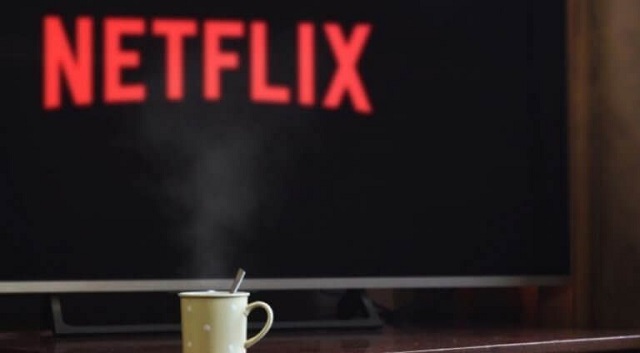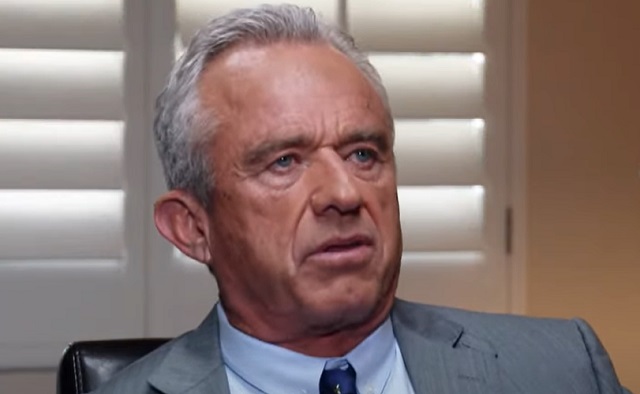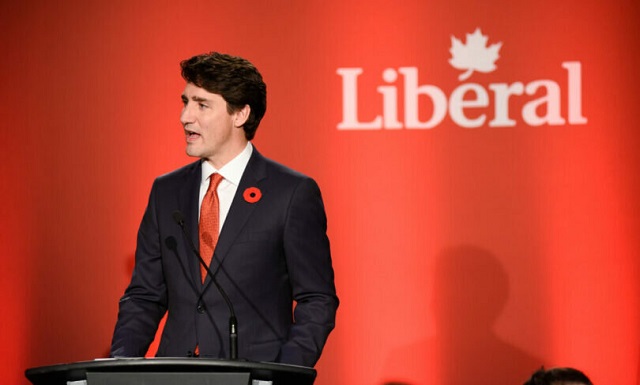Business
Netflix in Canada—All in the name of ‘modernizing’ broadcasting: Peter Menzies

From the MacDonald Laurier Institute
By Peter Menzies
Canada’s content czars are stuck in the past and trying to drag everyone back with them
Next week, the Canadian Radio-television and Telecommunications Commission (CRTC) will go live with its efforts to wrestle the internet and those who stream upon it into submission. Whether it fully understands the risks remains unclear.
There are 127 parties scheduled to appear before a panel of commissioners at a public hearing in Gatineau starting November 20. The tone-setting opening act will be Pierre-Karl Peladeau’s always-scrappy Quebecor while the UFC will throw the final punches before the curtain drops three weeks later.
The list of presenters consists mostly of what those of us who have experienced these mind-numbing hearings refer to as “the usual suspects”—interests whose business plans are built around the Broadcasting Act and the requirements of related funding agencies.
The largest Canadian companies will ask the CRTC to reduce its demands upon them when it comes to feeding and watering Big Cancon: the producers, directors, actors, writers, and other tradespeople who make certified Canadian content.
Quebecor, for instance, will be arguing for its contribution to be reduced from 30 percent of its revenue to 20 percent—a draw it proposes be applied to designated streamers. More money from foreign companies and less from licensed domestic broadcasters will be a recurring theme.
But there will also be a new slate of actors—those with business models designed to entertain and attract consumers in a free market—who will be staring down the barrel of CRTC Chair Vicky Eatrides’ stifling regulatory gun for the first time.
Disney+ is set to take the stage on November 29. Meta, the Big Tech bete noire that refused to play along with the Online News Act, is up on December 5.
But the big day will almost certainly be November 30 when Netflix locks horns with the Commission and what appear to be its dangerously naive assumptions.
More than half the streamer’s 30-page submission is dedicated to detailing what it is already contributing to Canada.
Some examples:
- $3.5 billion in investment;
- Thousands of jobs created;
- Consumers are 1.8 times more likely to watch a Canadian production on Netflix than they are on a licensed TV network;
- Le Guide de la Famille Parfaite—one of many Quebec productions it funded—was in Netflix’s global top 10 for non-English productions for two weeks.
Netflix is insisting on credit for what it already contributes. It has no interest in writing a cheque to the Canada Media Fund and takes serious umbrage with the CRTC’s assumption it will.
“The (hearing) notice could be understood to suggest that the Commission has made a preliminary determination to establish an ‘initial base contribution’ requirement for online undertakings,” Netflix states in its submission. “The only question for consideration would appear not to be whether, but rather what funds would be the possible recipients of contributions.
“Netflix submits that this is not an appropriate starting point.”
It gets worse. The CRTC is considering applying some of the non-financial obligations it imposes on licensed broadcasters such as CTV and Global to the streaming world.
Executive Director of Broadcasting Scott Shortliffe told the National Post recently that “Netflix is clearly producing programming that is analogous…to traditional broadcasters” and that it could be expected to “contribute” in terms of the shape of its content as well as how it spends its money.
In other words, the CRTC’s idea of “modernizing” broadcasting appears heavily weighted in favour of applying its 1990s way of doing things to the online world of 2023.
If that’s the case, the Commission is entirely unprepared to deal with the harsh truth that offshore companies don’t have to play by its rules. For decades, primary CRTC hearing participants have been dependent on the regulator. In the case of broadcasters like CTV and cable companies such as Rogers, their existence is at stake. Without a license, they are done. Which means they have to do what the Commission wants. But if the regulatory burden the CRTC places upon the offshore streamers doesn’t make business sense to them, they are free to say, “Sorry Canada, the juice just isn’t worth the squeeze. We’re outta here.”
This is most likely to occur among the smaller, niche services at the lower end of the subscription scale. The CRTC has to date exempted only companies with Canadian revenues of less than $10 million. Any company just over that line would almost certainly not bother to do business in Canada —a relatively small and increasingly confusing market—if the regulatory ask is anything close to the 20 percent commitment being suggested.
Ditto if the CRTC goes down the road Shortliffe pointed to. It would be absurd to impose expectations on unlicensed streamers that are similar to those applied to licensed broadcasters. For the latter, the burden is balanced by benefits such as market protection granted by the CRTC.
For streamers, no such regulatory “bargain” exists. Too much burden without benefits would make it far cheaper for many to leave and sell their most popular shows to a domestic streamer or television network.
The Online Streaming Act (Bill C-11), which led to this tussle, was originally pitched as making sure web giants “contraibute” their “fair share.”
So, as it turns out, was the Online News Act (Bill C-18).
That legislation resulted in Meta/Facebook getting out of the news business and Google may yet do the same. As a consequence, news organizations will lose hundreds of millions of dollars. Many won’t survive.
Eatrides and her colleagues, if they overplay their hand, are perfectly capable of achieving a similarly catastrophic outcome for the film and television industry.
Peter Menzies is a Senior Fellow with the Macdonald-Laurier Institute, a former newspaper executive, and past vice chair of the CRTC.
Business
Taxpayers criticize Trudeau and Ford for Honda deal

From the Canadian Taxpayers Federation
Author: Jay Goldberg
The Canadian Taxpayers Federation is criticizing the Trudeau and Ford governments to for giving $5 billion to the Honda Motor Company.
“The Trudeau and Ford governments are giving billions to yet another multinational corporation and leaving middle-class Canadians to pay for it,” said Jay Goldberg, CTF Ontario Director. “Prime Minister Justin Trudeau is sending small businesses bigger a bill with his capital gains tax hike and now he’s handing out billions more in corporate welfare to a huge multinational.
“This announcement is fundamentally unfair to taxpayers.”
The Trudeau government is giving Honda $2.5 billion. The Ford government announced an additional $2.5 billion subsidies for Honda.
The federal and provincial governments claim this new deal will create 1,000 new jobs, according to media reports. Even if that’s true, the handout will cost taxpayers $5 million per job. And according to Globe and Mail investigation, the government doesn’t even have a proper process in place to track whether promised jobs are actually created.
The Parliamentary Budget Officer has also called into question the government’s claims when it made similar multi-billion-dollar handouts to other multinational corporations.
“The break-even timeline for the $28.2 billion in production subsidies announced for Stellantis-LGES and Volkswagen is estimated to be 20 years, significantly longer than the government’s estimate of a payback within five years for Volkswagen,” wrote the Parliamentary Budget Officer said.
“If politicians want to grow the economy, they should cut taxes and red tape and cancel the corporate welfare,” said Franco Terrazzano, CTF Federal Director. “Just days ago, Trudeau said he wants the rich to pay more, so he should make rich multinational corporations pay for their own factories.”
Business
UN plastics plans are unscientific and unrealistic

News release from the Coalition of Concerned Manufacturers and Businesses of Canada
“We must focus on practical solutions and upgrading our recycling infrastructure, not ridiculous restrictions that will harm our health care system, sanitary food supply, increase costs and endanger Canadians’ safety, among other downsides.”
This week Ottawa welcomes 4,000 delegates from the United Nations to discuss how they will oversee a reduction and even possible elimination of plastics from our lives. The key problem is no one has ever figured out how they will replace this essential component of our modern economy and society. The Coalition of Concerned Manufacturers and Businesses of Canada (CCMBC) has launched an information campaign to discuss the realities of plastic, how it contributes massively to our society and the foolishness of those who think plastics can be eliminated or greatly reduced without creating serious problems for key industries such as health care, sanitary food provision, many essential consumer products and safety/protective equipment, among others. CCMBC President Catherine Swift said “The key goal should be to keep plastics in the economy and out of the environment, not eliminate many valuable and irreplaceable plastic items. The plastics and petrochemical industries represent about 300,000 jobs and tens of billions contribution to GDP in Canada, and are on a growth trend.”
The UN campaign to ban plastics to date has been thwarted by reality and facts. UN efforts to eliminate plastics began in 2017, motivated by such terrible images as rivers with massive amounts of floating plastic and animals suffering from negative effects of plastic materials. Although these images were dramatic and disturbing, they do not represent the big picture of what is really happening and do not take into account the many ways plastics are hugely positive elements of modern society. Swift added “Furthermore, Canada is not one of the problem countries with respect to plastics waste. Developing countries are the main culprits and any solution must involve helping the leading plastics polluters find workable solutions and better recycling technology and practices.”
The main goal of plastic is to preserve and protect. Can you imagine health care without sanitary, flexible, irreplaceable and recyclable plastic products? How would we keep our food fresh, clean and healthy without plastic wraps and packaging? Plastic replaces many heavier and less durable materials in so many consumer products too numerous to count. Plastics help the environment by reducing food waste, replacing heavier materials in automobiles and other products that make them more energy-efficient. Many plastics are infinitely recyclable and innovations are taking place to improve them constantly. What is also less known is that most of the replacements for plastics are more expensive and actually worse for the environment.
Swift stated “Environment Minister Steven Guilbeault has been convinced by the superficial arguments that plastics are always bad despite the facts. He has pursued a campaign against all plastics as a result, without factoring in the reality of the immense value of plastic products and that nothing can replace their many attributes. Fortunately, the Canadian Federal court overturned his absurd ban on a number of plastic products on the basis that it was unscientific, impractical and impinged upon provincial jurisdiction.” Sadly, Guilbeault and his Liberal cohorts plan to appeal this legal decision despite its common-sense conclusions. Opinion polls of Canadians show that a strong majority would prefer this government abandon its plastics crusade at this point, but history shows these Liberals prefer pursuing their unrealistic and costly ideologies instead of policies that Canadians support.
The bottom line is that plastics are an essential part of our modern society and opposition has been based on erroneous premises and ill-informed environmentalist claims. Swift concluded “Canada’s record on plastics is one of the best in the world. This doesn’t mean the status quo is sufficient, but we must focus on practical solutions and upgrading our recycling infrastructure, not ridiculous restrictions that will harm our health care system, sanitary food supply, increase costs and endanger Canadians’ safety, among other downsides.” The current Liberal government approach is one that has no basis in fact or science and emphasizes virtue-signaling over tangible and measurable results. Swift noted “The UN’s original founding purpose after World War II was to prevent another world war. Given our fractious international climate, they should stick to their original goal instead of promoting social justice warrior causes that are unhelpful and expensive.”
The CCMBC was formed in 2016 with a mandate to advocate for proactive and innovative policies that are conducive to manufacturing and business retention and safeguarding job growth in Canada.
SOURCE Coalition of Concerned Manufacturers and Businesses of Canada
-

 COVID-191 day ago
COVID-191 day agoPfizer reportedly withheld presence of cancer-linked DNA in COVID jabs from FDA, Health Canada
-

 Censorship Industrial Complex2 days ago
Censorship Industrial Complex2 days agoJordan Peterson, Canadian lawyer warn of ‘totalitarian’ impact of Trudeau’s ‘Online Harms’ bill
-

 COVID-1919 hours ago
COVID-1919 hours agoTrudeau gov’t has paid out over $500k to employees denied COVID vaccine mandate exemptions
-

 Alberta2 days ago
Alberta2 days agoAlberta official reveals ‘almost all’ wildfires in province this year have been started by humans
-

 Bruce Dowbiggin2 days ago
Bruce Dowbiggin2 days agoCome For The Graduate Studies, Stay For The Revolution
-

 International18 hours ago
International18 hours agoRFK Jr tells EWTN: Politicization of the CIA, FBI, Secret Service under Biden is ‘very troubling’
-

 Alberta2 days ago
Alberta2 days agoPolitical parties will be part of municipal elections in Edmonton and Calgary pilot projects
-

 National1 day ago
National1 day agoAnger towards Trudeau government reaches new high among Canadians: poll






